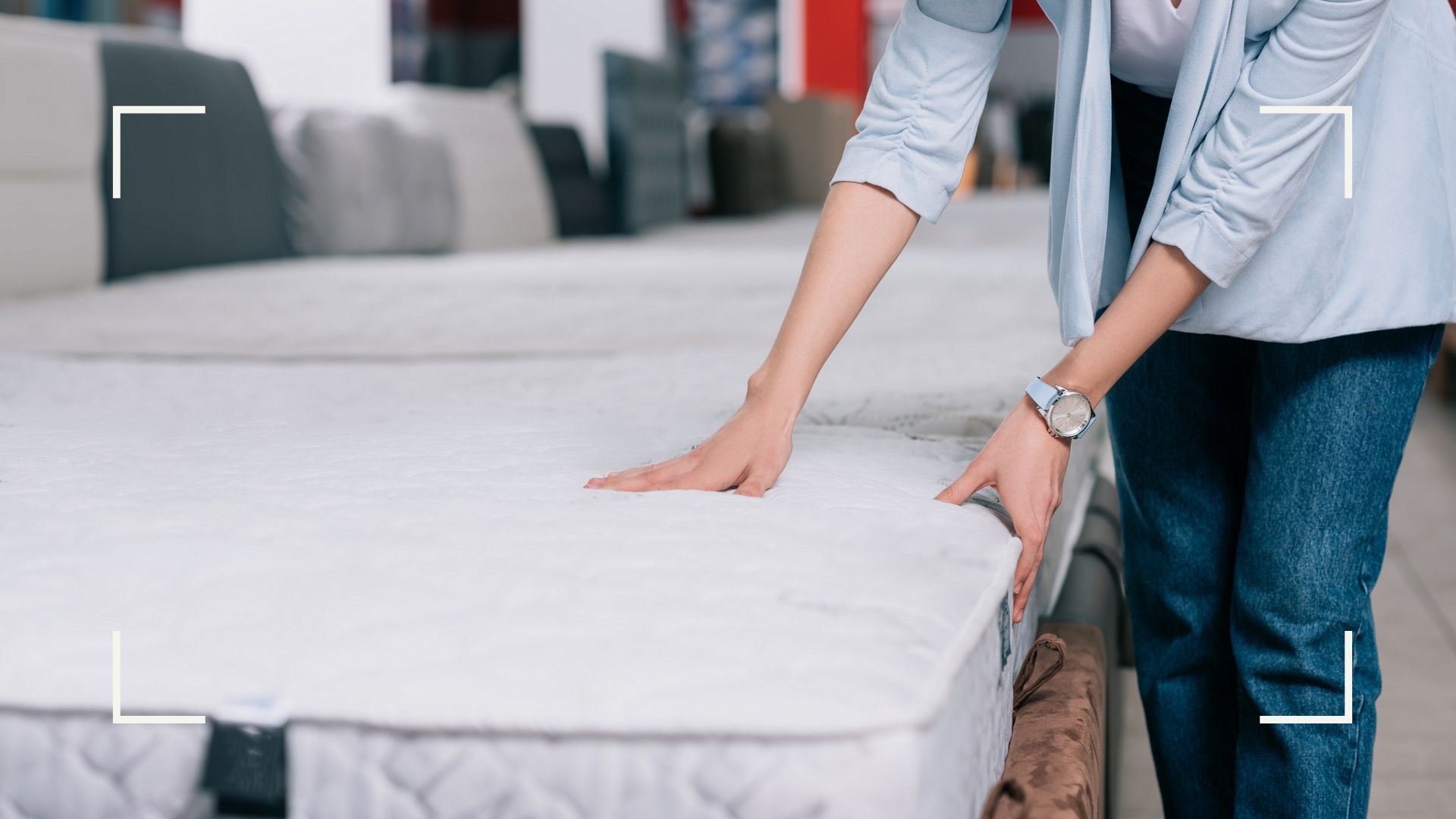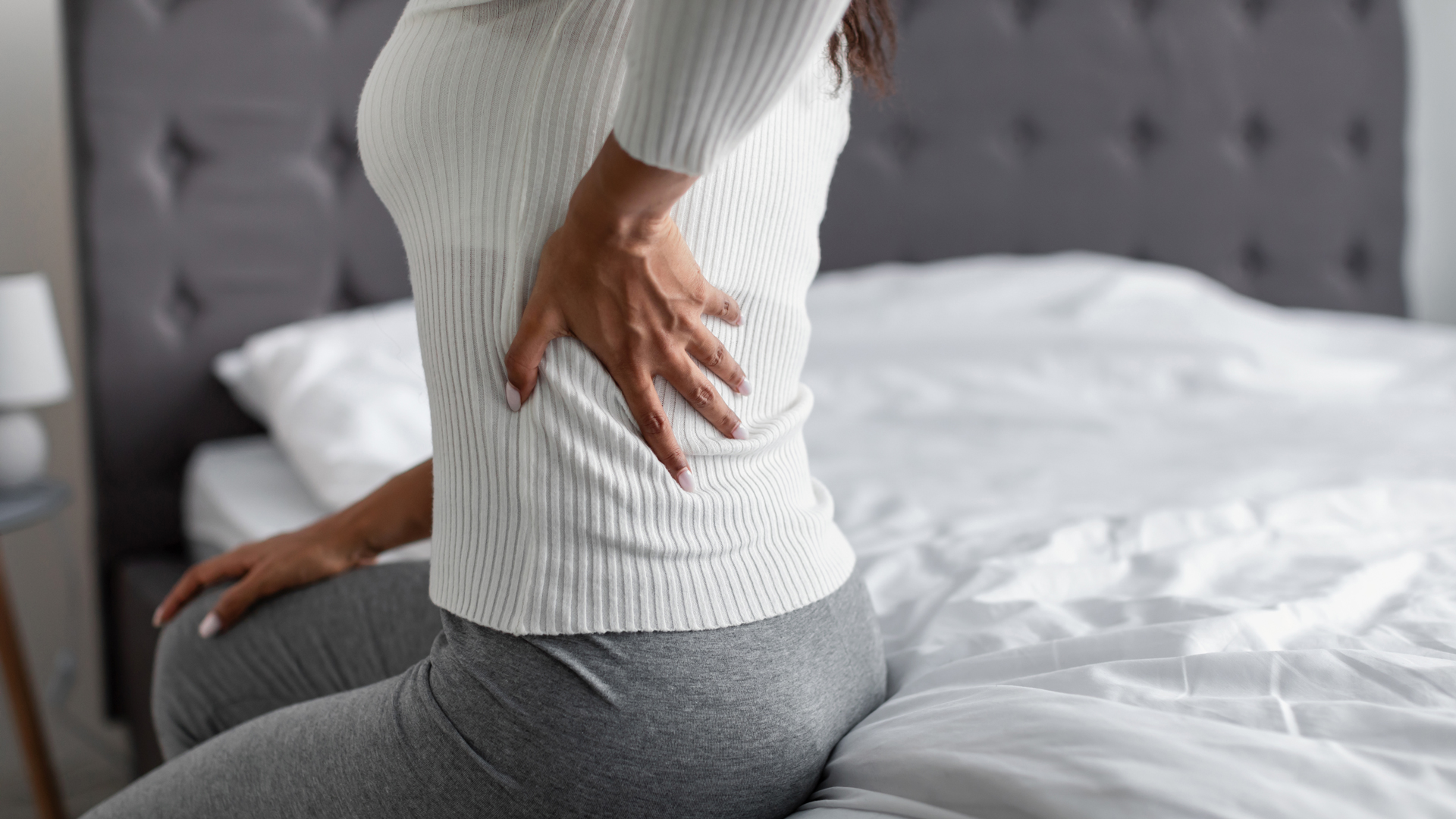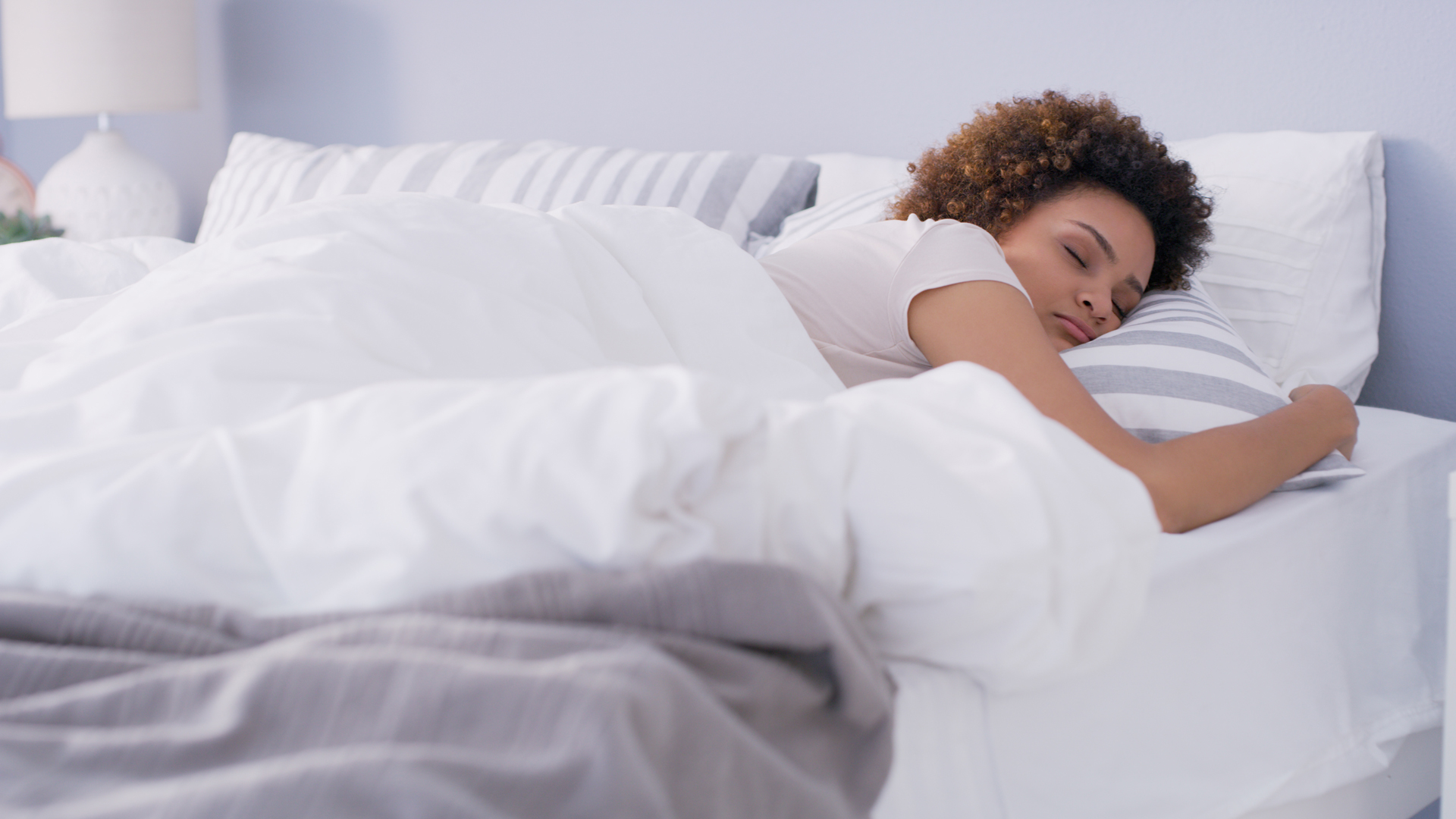How often should you change your mattress? Experts reveal the answer
We turn to experts to find out how often you should change your mattress - and the answer might come as a surprise


A good mattress is essential for a proper night's sleep – but how long do they last? And how often should you change your mattress?
Experts claim that there is actually an expiry date on them (we bet it's sooner than you think) – and that your mattress will give you hints that it's in need of replacing.
Knowing when it's time to replace your mattress is essential because if you hold on to an old mattress for too long, it could begin to impact the quality of your sleep. The best mattresses should be firm yet comfortable and supportive. They should help you sleep better, leaving you pain-free and recharged when you wake up.
"The importance of investing in a mattress that is high-quality, and the appropriate type for your body should not be underestimated. If you take the time to research how to maintain your mattress and what the best type is for you – this can lengthen its life and save you money in the long run," explains sleep expert at Sealy, Alison Jones.
How often should you change your mattress?
How often you should change your mattress is a question with no definite answer, but experts agree it's typically between 7 and 10 years. According to Lauren Fountain, Certified Sleep Science Coach at The Sleep Foundation, "Most mattresses should last between seven and 10 years. However, there are many variables that can influence mattress lifespan."
"As a general rule, your mattress should be replaced every eight years," agrees Alison.
"Most manufacturers state their mattresses should last between seven and ten years," says Martin Gill, MD of the luxury mattress and bed retailer And So To Bed. "However, if the mattress has not been cared for, the springs are broken, it has been subjected to spills or excess moisture, or the filling has been dislodged, then you will have to replace it sooner."
Sign up to our free daily email for the latest royal and entertainment news, interesting opinion, expert advice on styling and beauty trends, and no-nonsense guides to the health and wellness questions you want answered.
Martin goes on to explain, "even if the exterior of the mattress looks fine but you find you are waking up with aches and pains that cannot be explained, such as delayed onset muscle soreness from the gym, then it may be that your mattress is no longer supporting your pressure points and your spine is not aligned properly on it. This would indicate that it is time to invest in a new mattress, whether the seven to ten years have passed or not."
The quality of your mattress and the materials it is made out of are two factors that can influence mattress lifespan. Logan Foley, Certified Sleep Science Coach at The Sleep Foundation explains, "The materials used to manufacture your bed greatly influence its durability."
"Lower-quality innerspring and all-foam mattresses tend to have the shortest lifespans, as they are prone to sagging and body impressions respectively. Hybrid mattresses are also prone to these issues, but since they’re often sold as higher-end options and made with higher-quality materials, they tend to be more durable. Latex mattresses are the most durable, lasting upwards of eight years."
Most mattress manufacturers put their products, including their best pillows, through thorough testing procedures to ensure they will last for that length of time, but how you care for your mattress will also have an impact on its lifespan.
Each brand and company will have its own set of guidelines for mattress care, so always make sure to read the care guide for your specific mattress.

How do you know when your mattress needs replacing?
So how do you know when your mattress needs replacing? The obvious sign that your mattress has deteriorated is if it is physically losing its shape by sagging in the middle (by more than 2.5cm) and the outer fabric is beginning to wear away fray, or even tear.
“A telling sign that your mattress is nearing the end can be different for everyone, but some common signs can include sagging or damage, noticeable noise, or squeaking sounds," says Alison. If you’re consistently experiencing poor quality of sleep with no noticeable cause, your mattress could be to blame.
"A mattress’ primary role is to support you in achieving restful sleep. If you find that you are waking frequently due to sore muscles and general discomfort, it is likely that the mattress is no longer supporting your pressure points," says Martin, "Or your spine is no longer properly aligned, suggesting that the mattress either needs to be thrown out or that your body needs a different type of support, in both cases, a new mattress should be bought."
"Similarly, there may be indicators that the mattress is past its peak based on dips, lumps, any odor, or staining," adds Martin.
If your mattress is fairly new and you still feel uncomfortable sleeping, you might consider buying one of the best pillows for neck pain or the best pillows for back pain to help support your body in addition to your mattress. Or, you can consider the possibility that the mattress you have chosen is not the best one for you in terms of firmness and support.
If you share your mattress, this problem may be intensified because older ones tend to transfer more motion from one side of the bed to the other. This means that a partner changing positions in the night can disrupt your sleep. A newer mattress, and particularly an all-foam or hybrid bed, will transfer less motion, helping couples work out how to sleep better together.
If you're really still not sure whether you need a new mattress, according to The Sleep Council, if you answer yes to at least three of the questions below, you probably do:
- Is the mattress seven years old or more?
- Does it make suspicious noises in the night?
- Did you have your best recent night’s sleep in a bed other than yours?
- Are you waking up more frequently unrefreshed and aching?
- Do you and your partner roll towards each other unintentionally in the middle of the night?
- Do you have enough space to sleep comfortably?
- Is it sagging?
- Does it feel lumpy in the night?
Why is it important to replace an old mattress?

One of the most important reasons to replace a mattress at least every decade is to ensure you have the most comfortable sleep possible, with minimal aches and pains.
But aside from that, getting a new mattress can also be important from a sleep hygiene perspective. The Sleep Matter Club at Dreams states that the average person spends about 26 years sleeping in their life, which equates to 9,490 days or 227,760 hours. Over this time, mattresses can accumulate an alarming amount of hidden nasties, including skin cells, dust, dust mites, hair, fur, bacteria, and mold. The study states how the average mattress can have between 100,000 and 10 million dust mites, that feed on the 4.83kg of dead skin cells shed during its lifespan.
The study commissioned by Dreams and conducted by Microtech Services Ltd concluded that after eight years of sleeping on the same mattress, you could be sharing your bed with a whole host of unwanted microscopic guests, such as bacteria, yeasts, and molds that thrive in the material.
University professor and environmental hygiene expert, Dr. Lisa Ackerley, said of the study, “Most people would be rather surprised by the things you can find in an old mattress. Mold spores and bacteria build up over the years and although invisible, you could be breathing in these harmful spores at night."
"Due to the amount of human contact with the average mattress, it’s inevitable that microbes and unwanted guests will develop over time. People tend to focus on cleaning the things they can see, pillows and sheets, but the mattress itself can be a ‘hot bed’ of potential illness.”
How to prolong the life of your mattress
How often you should replace your mattress can be down to how well you look after it. Here we share expert tips on how to take care of your mattress to help it last as long as possible.
1. Turn your mattress
Not all mattresses need turning. But if your manufacturer requires it, it's recommended that you flip or rotate it to continue an even settlement. "You should rotate your mattress around once every 3 - 6 months," advises Alison.
See our guide to find out how often to rotate your mattress – but doing so monthly is generally a good idea. You should alternate between turning the mattress over (if it isn't a foam mattress) and rotating it from top-to-tail. If your mattress has handles, use these to position it on the divan base or frame. Do not allow the mattress to bang or fall against the side of the divan or frame, as this may damage the spring system.
2. Change the bedding regularly
We all love sinking into a clean bed, and it turns out this is also good for our mattresses too - so regular washing is a must. Because the softest sheets made of cotton are a natural, breathable fabric, all of the bodily fluids, skin cells, and microbes within them will soon seep through the fibers and fester within the mattress below if not removed and washed regularly.
We've also asked the experts how often you should wash your sheets and the resounding advice is that you should be washing your sheets every week ideally, or at least every two weeks.
3. Clean the mattress often
Cleaning your mattress often is vital for prolonging its lifespan, especially considering how much bacteria can be found living in the materials. With our simple guide for how to clean a mattress it's really pretty simple.
Simply strip the bed linen off, and hoover the mattress to remove any bigger pieces of dirt or dust. Then, spot clean any specific stains with warm water and stain remover. Baking soda also works a treat - simply shake it onto any stains, leave for a few hours, and hoover off when ready.
4. Invest in mattress protection
If you fear your mattress doesn't have long left, then you could buy some time with the best mattress topper. "Simply investing in a mattress protector can make it more durable," says Alison. A mattress topper is an extra layer that goes on top of your mattress, to provide extra comfort as well as protection from stains.
"By failing to use a mattress protector you are allowing moisture and so on to be absorbed into the mattress," explains Martin. "And by keeping sheets on and failing to flip or rotate this moisture and bacteria build-up to make the mattress unpleasant, inside and out."
They come in all sorts of thicknesses and materials. Chrissie Rucker OBE and founder of The White Company, explains how they aid comfort while helping prolong the mattress life, "A mattress topper always makes the bed feel even better – it provides a luxurious layer of comfort for that ‘sleeping-on-a-cloud’ feeling."
Can a mattress last 20 years?
It is not advisable to keep a mattress for 20 years, from a hygiene perspective. Even if it looks okay, it's all the things you cannot see that make it unhygienic after the recommended lifespan of 10 years maximum.
"It is very rare that a mattress could last 20 years," says Martin. "Even if you are someone that uses a mattress protector, regularly flips or rotates their mattress and invest in professional cleaning, there is the chance that a mattress can last 20 years, but eventually with regular use the filling will begin to dislodge and the support it provides will lessen, meaning it won’t be doing its job of supporting you while you sleep."
Rachel Homer has been in the interiors publishing industry for over 15 years. Starting as a Style Assistant on Inspirations Magazine, she has since worked for some of the UK’s leading interiors magazines and websites. After starting a family, she moved from being a content editor at Ideal Home to be a digital freelancer and hasn’t looked back.
